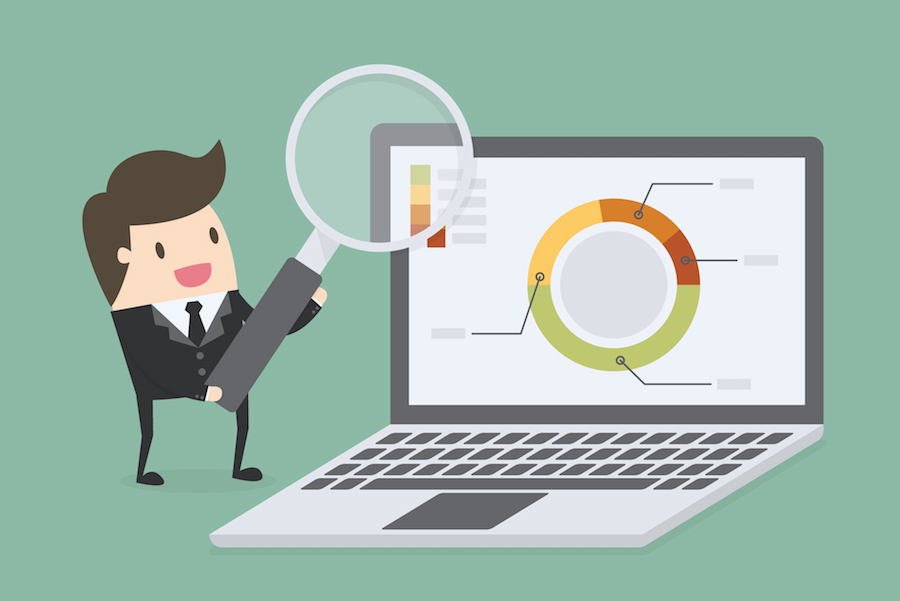
How do you convince a potential customer to buy from you if they’ve never bought from you before?
There are a few tried and true sales strategies you could try, of course, like having a well-designed website, writing sales copy that pitches your product as the solution to their problems. You could develop a strong value proposition that sets you apart from your competitors, and even split test your site to ensure visitors see a version of your brand that works for them.
But in the end, it might not be enough. That’s because 81% of buyers make purchasing decisions not based on sales gimmicks, but on what they hear about your brand on the Web.
The number one selling point for customers is still reputation, and what people say about you online matters to your bottom line.
While there are plenty of tools out there that can help you check your reputation, what you need to truly sell is a custom brand monitoring solution. Here’s why…

Why You Should Care About Brand Monitoring
By learning about a customer’s experience with your site, you can discover what you’re doing right and in which areas your sales pitch is falling short.
But following your potential customers around the Internet isn’t always easy, and deciphering information beyond data points and figures can be equally complicated. You can’t just look at a spreadsheet of statistics; you have to practice what’s known as “social listening.”
Social listening is the process of monitoring digital channels – social media sites, review sites, blogs, forums and comment sections, for example – for mentions of your brand, competitors, products, or relevant themes to your business.
But while traditional monitoring is focused on metrics (engagement rates, number of mentions, and so on), social listening looks beyond the numbers at the overall mood behind the social media posts — how people actually feel about you, your competitors, and your industry.
Most brand-monitoring software will find mentions of your brand, but not all software will help you truly listen to what’s being said. This is why having custom brand monitoring software may be a better option.
Why Custom Brand Monitoring Is Essential
Most brand-monitoring software will allow you to track and report mentions based on keywords or groups of related keywords, as well as alert you when mentions appear on any given site or channel.
But custom brand-monitoring software goes a step further by allowing you to collect, analyze and manage your mentions, apply sentiments, and even compare your sentiments to those of your competitors.
Applying sentiment is especially important in brand monitoring.
Most brand monitoring software attempts to assign a sentiment to a mention – positive, negative or neutral – but without knowing your audience or your intention, it doesn’t always have the capacity to assign those sentiments properly.
Sentiment is important when you’re trying to decipher whether or not 100 mentions of your brand on Twitter were for something great (people loved your product) or because you made a marketing faux pas that’s gone viral.
Custom software allows you to better measure sentiment by tracking trends, identify and amplify positive interactions, and respond appropriately when negative responses are flagged.
It can help you see trends that occur over time so you can develop marketing tactics aligned with your audience’s perception of your brand, not just static metrics and mentions.

How Web Scraping Can Help with Brand Monitoring
Part of the way that custom software can better help applying sentiment is through the use of structured data, gathered through web scraping.
By using web crawling tools that are preconfigured to collect and store only certain kinds of data, you can monitor relevant information with more targeted sentiment from thousands of different web sources.
Not only does this give you a detailed idea about your brand sentiment, it also makes things easier for brand marketers to formulate strategy, target new marketing campaigns and generate new leads and sales, leading to better revenue.
In addition to sentiment and social media mentions, you can also do things like:
- Develop a more competitive pricing strategy – You can crawl price comparison sites for pricing data, product descriptions, as well as images to receive data for comparison, affiliation, or analytics.
- Track reviews and industry trends – Scraping reviews and profiles from social media channels and review sites can give you a clearer picture of product performance, customer behavior, and interactions.
- Detect fraudulent reviews – Web scraping can help identify opinion spamming, fake reviews, and other deceptive marketing strategies that may be used to harm your brand’s reputation on review sites or social media.
- Create highly targeted ads – A good web crawler can identify opinions by demographics such as age group, gender, sentiments, and GEO location, which can be used to create highly targeted campaigns and advertisements.
- Perform social media analytics – You can extract data from social media channels for better social analytics, aiding in the social listening and response process.
This process can be largely automated as well, allowing you to pull data whenever you need. You can also engage with customers in real time and use the information you gather to make your brand more credible.
Final Thoughts
While simple brand monitoring tools can provide you with metrics that can help you monitor your online reputation, in order to get the most accurate results, you really need a custom solution.
Custom brand-monitoring software takes your social listening to the next level, allowing you to customize the data you pull and apply sentiment so that you can make better marketing decisions.
It can also help you with other practicalities, like finding reviews from many different sites, detecting fraudulent reviews that could harm your brand, and help you create targeted ads to niche demographics.
At the end of the day, it matters what people say about you online. But in order to address your online reputation, you need better metrics and you need to be able to listen with all your digital ears open.
Custom monitoring software allows you to do all that and more, which makes it an essential tool to have when creating a robust marketing strategy for your business.
You must be logged in to post a comment.